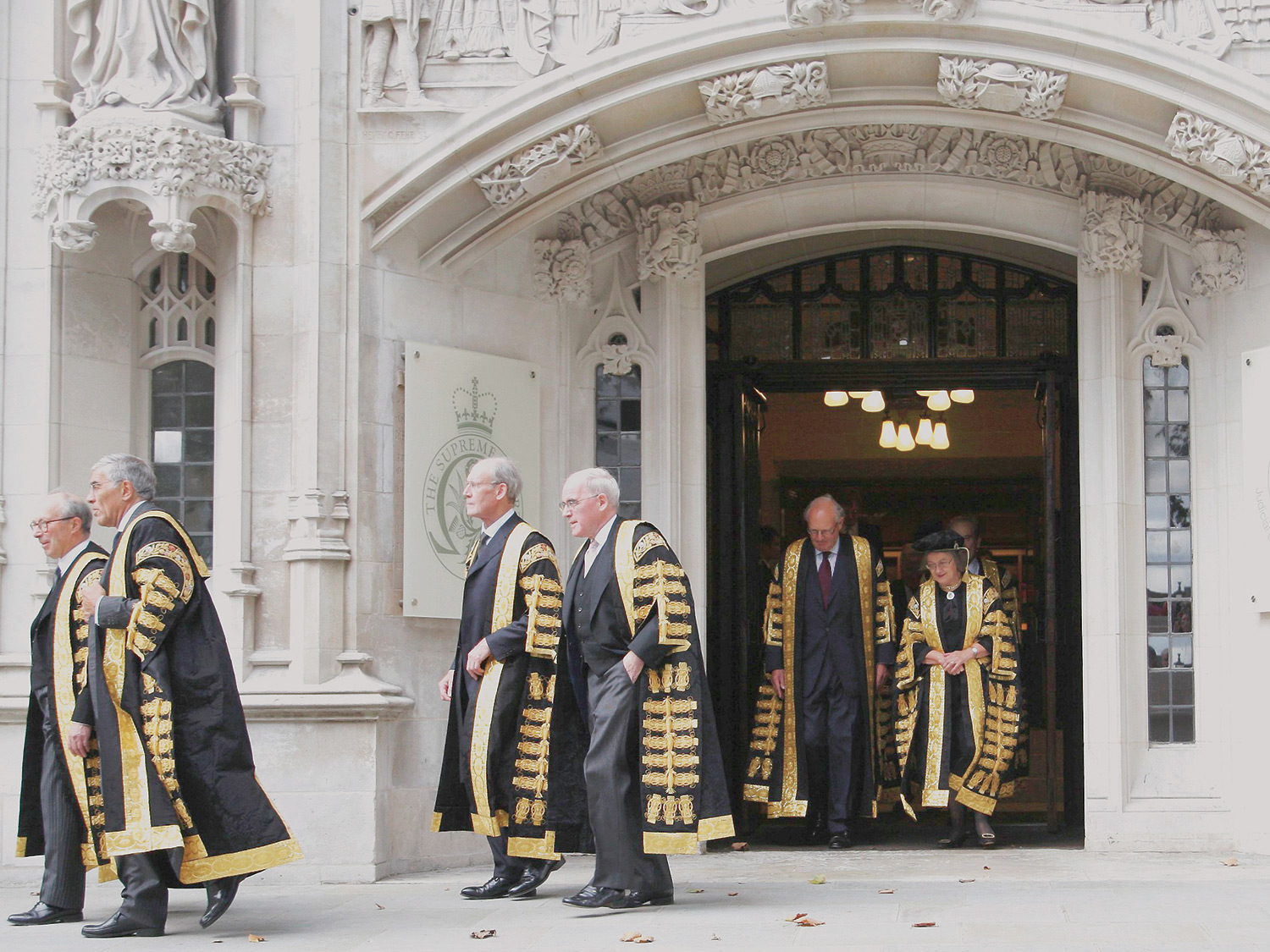

LONDON: Prime Minister Theresa May’s government launches a challenge on Monday against a court ruling that it requires parliamentary approval to start the process of leaving the European Union, a decision that could upset Britain’s Brexit plans.
If the Supreme Court, the United Kingdom’s highest judicial body, dismisses the government appeal it could derail May’s timetable for triggering Article 50 of the Lisbon Treaty and leaving the EU.
The government’s legal fight comes against a backdrop of claims by some politicians and newspapers that establishment judges want to thwart the Brexit process.
It will be the most high-profile and complex case the court has considered since it came into being seven years ago and is due to last for four days. For the first time all its 11 justices will sit on the panel with the verdict due later in January.
“The case raises difficult and delicate issues about the constitutional relationship between government and parliament,” Brenda Hale, the Supreme Court’s Vice-President said in a speech last month.
“What is meant by the exercise of the executive power of the state? We do not have a written constitution to tell us the answer. But I doubt whether many written constitutions would tell us the answer either.”
If May wins, she can proceed with her plans to invoke Article 50 by the end of March.
But if she loses, parliament could in theory block Brexit as most lawmakers (MPs) supported staying in the EU in a referendum in June, though few observers expect such an outcome. Even so, lawmaker approval could open the process to greater scrutiny and delay.
Investors believe the greater parliament’s involvement the less chance there is of a “hard Brexit” in which tight controls on immigration are prioritised over European single market access. The pound surged after November’s High Court ruling.
In a sign of how thorny the process could be for May, the pro-EU Liberal Democrat party says it would vote against Article 50 unless there is a new referendum on the final Brexit deal, a concession May is highly unlikely to make.
The party won a ninth seat in parliament on Thursday in a local by-election vote.
The High Court challenge was brought by investment fund manager Gina Miller with hairdresser Deir Tozetti Dos Santos the second claimant.
Other parties will also be allowed to offer legal arguments this week, including the devolved Welsh government, a group of ex-patriate Britons, and the Independent Workers Union of Great Britain which represents mainly low-paid migrant workers. So too will the Scottish government, which strongly opposes Brexit and has been seeking ways to keep Scotland in the EU.
The case hinges on whether the government can use a historical power known as “royal prerogative” to invoke Article 50 without lawmakers’ assent.
USEFUL DISTRACTION?: The challengers argued that Britons would inevitably lose rights granted under an act of parliament when leaving the EU, and that under Britain’s unwritten constitution such rights could only be taken away with parliamentary approval.
The High Court agreed with this, rejecting the government’s assertion parliament had given its approval by allowing a referendum and that it was established the executive alone could make or leave international treaties.
The government’s prepared argument for the Supreme Court is little changed from before. Miller has said she suspected May might be happy to lose, with the court battle providing a useful distraction to ministerial divisions and Brexit indecision.
June’s vote to leave the EU exposed deep divisions in Britain, and some pro-Brexit politicians condemned the High Court for flouting democracy. The Daily Mail newspaper called the three senior judges involved “enemies of the people”.
Miller herself has become a target of hate and has received abuse and death threats. Some lawmakers in May’s Conservative Party have also called for Supreme Court President David Neuberger to stand down because his wife had posted anti-Brexit messages on Twitter. One of the court’s justices, Brian Kerr, said judges would not be swayed by personal views.
“That’s not to say we don’t have personal views, but we are all extremely conscious of the need to set aside our personal views and apply the law as we conceive it to be,” he told the BBC last month. —Reuters
Oman Observer is now on the WhatsApp channel. Click here



